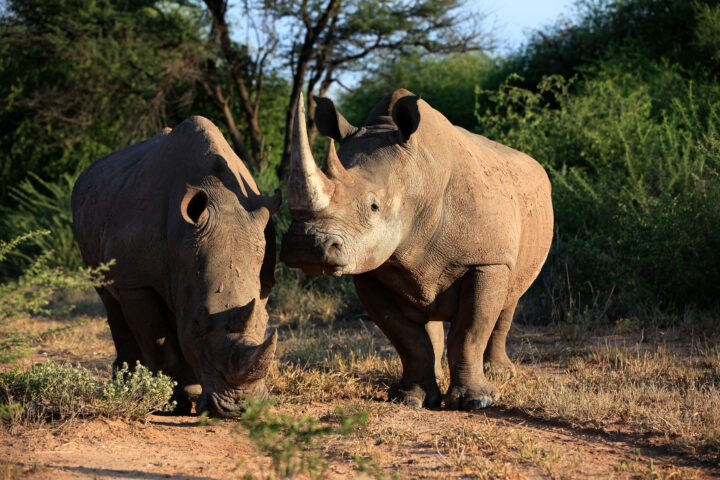
More sustainability for people and the environment
Royal DSM strives to reduce malnutrition around the world, lower emissions from animal farming and strengthen the livelihoods of small farmers by 2030. Royal DSM is increasing its efforts in the areas of sustainability and health, and its commitment shows that sustainability must be viewed holistically.
Wednesday, September 22, 2021
Global food production is feeding more people than ever before. At the same time, it is also significantly contributing to a number of problems. For example, a quarter of global greenhouse gases come from the production of food and consumption. There is also widespread malnutrition, and some two billion people have a “micronutrient gap,” due to insufficient access to vitamins and minerals. In addition, many farmers live in poverty. DSM has committed itself to counteracting these trends and has set concrete goals:
Healthy nutrition
Around a third of of the world’s population have insufficient access to adequate nutrition. Many suffer from vitamin and mineral deficiency. Fortified staple foods and dietary supplements offer a more efficient and simpler way to improve these conditions. DSM is working to close the micronutrient gap for 800 million people by 2030 through fortified staple foods and dietary supplements. The company is also undertaking to strengthen the immune systems of 500 million people. This is especially important during the COVID-19 pandemic.
Reduce greenhouse gases
Agriculture makes a significant contribution to greenhouse gases and thus to climate change, especially through livestock farming. At the same time, agriculture is one of the first sectors to suffer from changed climate conditions. For this reason, reducing greenhouse gases is urgently needed. Greenhouse gases from dairy production will be reduced by 20 percent by 2030. At the same time, emissions of ammonia from pig farming and emissions of phosphorous from poultry farming will each by cut by a third. Feed additives will, for example, decrease the amount of methane produced in cows’ stomachs.
Creating livelihoods
Around a billion people around the world earn a living from agriculture. Nearly half live in poverty and can scarcely afford nutritious food. They need a fair and stable income to be able to meet their basic needs. DSM has committed itself to improving the livelihood of 500,000 small farmers by 2030. In order to achieve this goal, DSM is increasing its collaboration with Africa Improved Foods (AIF). This public-private partnership based in Rwanda produces affordable food that has been fortified with nutrients. It procures grains from local farmers, allowing them to earn a secure and regular income. As this example shows, there is a social aspect to sustainability too.
Sources
Related articles

Pesticides in Water: The sources are more varied and closer than we think
A new national study reveals that pesticide contamination in Swiss rivers and streams has more complex causes than previously assumed. While substances still originate from agriculture, a considerable share enters waterways through other pathways.

Biotechnology as a Tool for Nature Conservation
New genomic technologies can help save endangered species – from the chestnut tree to the northern white rhino.

The Poison and the Dose
The debate about threshold values for chemical residues in water and food is often shaped by misunderstandings and emotions. Few topics show as clearly how far perception and science can drift apart. But what do limit values really mean? In autumn 2025, the Agricultural Policy Podcast and swiss-food.ch will explore our relationship with limits and risk in a five-part series. The highlight will be a live podcast recording on November 5 at Bogen F in Zurich.

‘No genetic engineering’ is simply not an option!
For years, politicians and environmental organisations have been stirring up unnecessary fears about a technology that has been helping to conserve resources and protect the environment for decades, while improving the quality and tolerability of food and cosmetics. It is time to put an end to this consumer deception.

